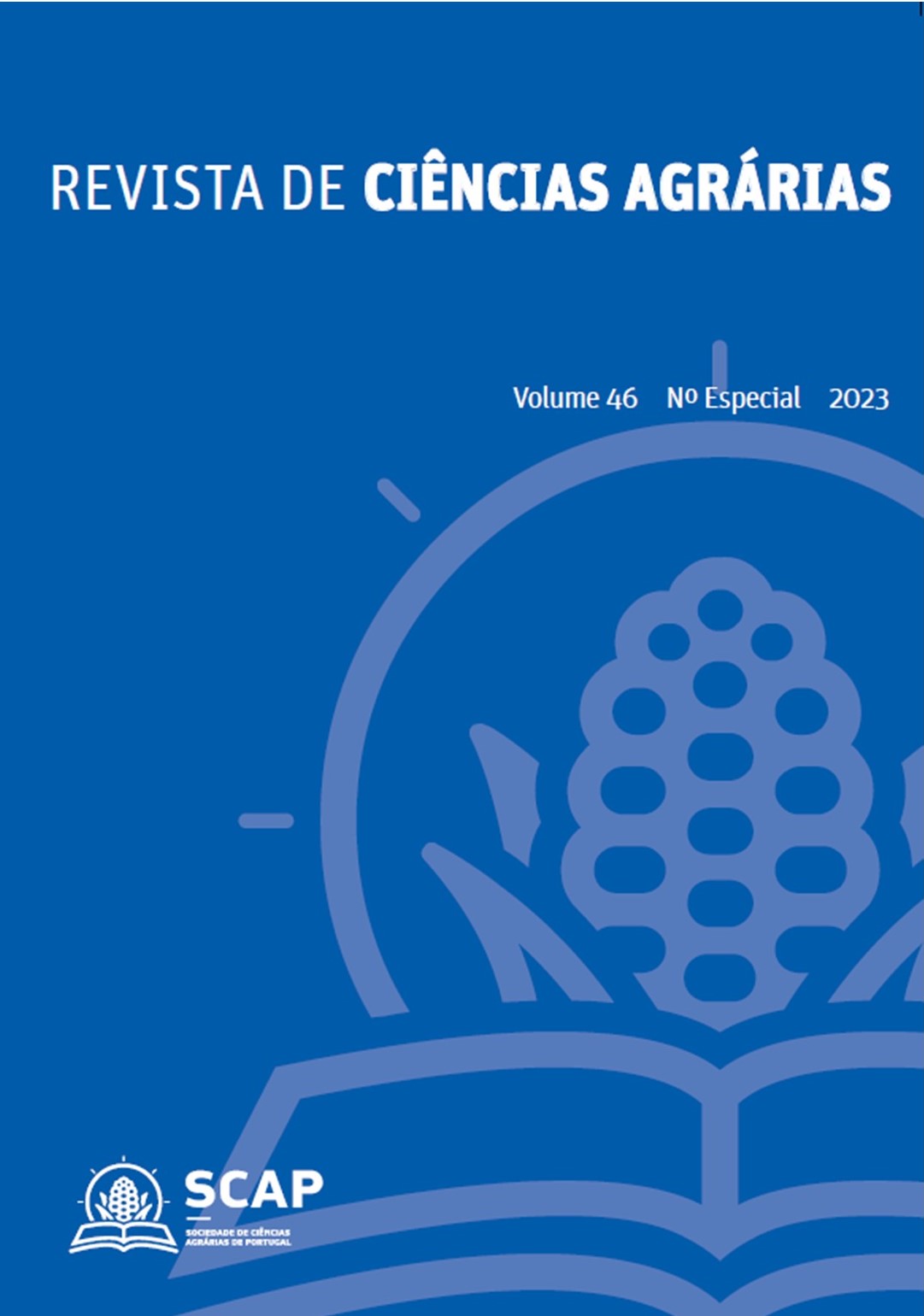Effect of different bulking agents and turning on composting of olive pomace
DOI:
https://doi.org/10.19084/rca.33403Abstract
Portugal is the fourth largest producer of olive oil in the European Union, resulting in a large generation of olive pomace (BA), a phytotoxic by-product. Composting is an alternative for its treatment and this study evaluated two bulking agents (AE): forest biomass (BF) and almond husk (CA), in 7 piles: pile BA+ (100%BA; C/N 19); BABF+ (50%BA, 50%BF; C/N 26); BACA+ (50%BA, 50%CA; C/N 33); BABFCA+ (50%BA, 25%BF, 25%CA; C/N 33); BACA- (50%BA, 50%CA; C/N 33); BABF- (50%BA, 50%BF; C/N 26); BA- (100%BA; C/N 19), the sign (+) indicates turned piles and (-) static piles. Temperature (T), humidity, density, pH, EC, ash and phytotoxicity were monitored. Concentrations of total organic carbon (COT), total nitrogen (Nt), C/O, H/C and C/N ratios were determined through elemental chemical analyses. As the main results, piles (-) showed lower T and ash content and higher COT and Nt, indicating slower decomposition. BA+ and BA- showed the highest Nt values and the piles lost their phytotoxicity. It was concluded that there was a positive effect of AE and turning, improving the decomposition of the material, losing phytotoxicity and consequently, enhancing the stabilization and mineralization of organic matter.


